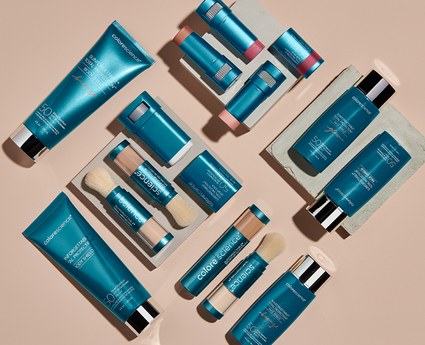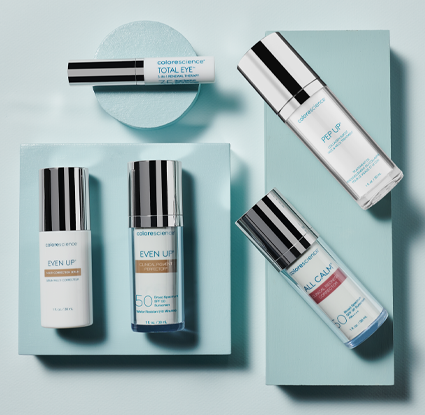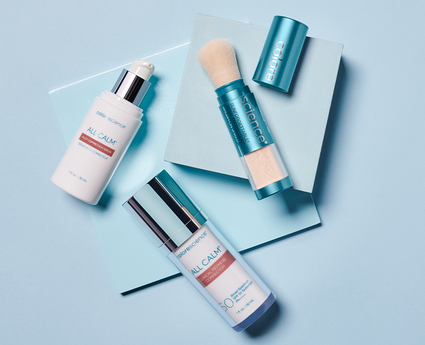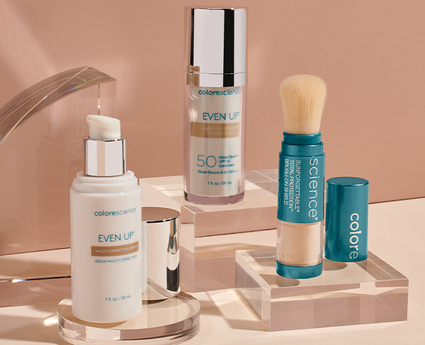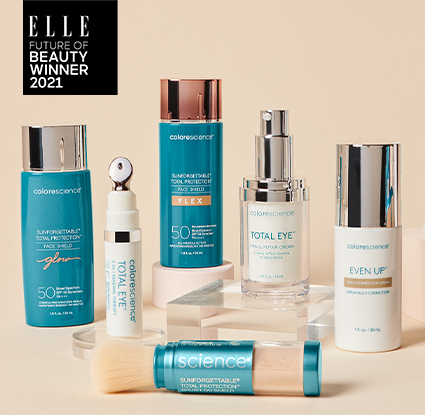What Is Vitamin D Good for?
Vitamin D is an important nutrient that is vital for strong bones, teeth, and skin. It also has anti-inflammatory properties and is shown to keep infections under control. The human body is stimulated to produce vitamin D by the sun, and it has receptors throughout the body for the uptake of this vital nutrient.
In short, it helps the body function at its best. However, many people are deficient in vitamin D due to a lack of exposure to the sun and the fact that a limited number of foods contain the vitamin.
Some foods, such as milk, are supplemented with vitamin D to help with deficiencies, but not everyone drinks milk or consumes foods that have enough of it. That means people have to make an extra effort to consume a sufficient quantity of the vitamin to give their body what it needs.
It's important to make sure that you’re prioritizing vitamin D to enjoy the positive effects it has on your overall well-being. Read on for an in-depth answer to “What is vitamin D good for?”.
- What Is Vitamin D?
- What Are the Benefits of Vitamin D?
- Is Too Much Vitamin D Bad for You?
- How Do You Know If Your Vitamin D Is Low?
- How to Get More Vitamin D
What Is Vitamin D?
Vitamin D is both a nutrient and a hormone that's produced by the human body. It's a fat-soluble vitamin that improves the body's ability to absorb calcium and phosphorus via the intestines and directly influences the creation of new bone.
The vitamin is found in animal-based foods that include:
- Liver
- Fatty fish
- Egg yolks
- Butter
If you've ever shopped for supplements, you may have noticed that there are different types of vitamin D. They include D2 and D3. Vitamin D2 is made from plants, while D3 is made from lanolin.
Vitamin D3 is considered the better of the two as it's readily absorbed and lasts longer in the bloodstream for improved efficacy than D2. However, D2 is a viable alternative for people who don't want to consume an animal-based product.
Exposure to sunlight stimulates the body to produce vitamin D, but it's also not unusual for someone to be deficient in the vitamin either. There are a few reasons for a vitamin D deficiency, but the major culprits include a lack of exposure to sunlight and diet.
Modern life means less time is spent outdoors on a daily basis, and vitamin D isn't readily available in many foods. The good news is it's easy to resolve a lack of vitamin D through supplementation.
What Are the Benefits of Vitamin D?
So, what is vitamin D good for in the human body? It so happens that vitamin D is great for a lot of critical functions. It keeps your bones and teeth strong, improves your energy levels, improves nerve signal transmission, and more.
The following are some of the most notable benefits of taking vitamin D.

Energy Levels & Immune Health
It's theorized that vitamin D improves mitochondrial function in the cells. Mitochondria generate the energy the body needs to function, and they can do their job right when the body has sufficient amounts of vitamin D in the bloodstream.
Vitamin D also boosts the immune system by reducing inflammation and lowering the response of the body's immune system to an infection. The immune system can still do an effective job of fighting off an infection, but the physical response is less severe and makes it easier to tolerate being sick.
Low energy levels and poor immunity are hallmarks of vitamin D deficiency but are readily resolved by supplementing with the vitamin.
Skin
Skin products that contain vitamin D work on inflammatory conditions that cause unwanted red patches and also help reduce the effects of the environment on your skin. Vitamin D acts as a natural steroid but doesn't have the unwanted side effects that come with chemical-based steroids.
The skin benefits directly and indirectly from taking vitamin D orally and using it directly on the skin.

Mental Health
Vitamin D has proven to be an important nutrient that can impact symptoms of depression and negative emotions.
That said, there is still a lot of research to be done, and how the nutrient impacts other mental health conditions is still highly debated. There is a lot of speculation about how vitamin D deficiency can impact other mental health conditions.
Disease Prevention
Vitamin D has been shown to be important for disease prevention. For example, it’s known to reduce cancer cell growth. There are currently many studies underway to determine how vitamin D impacts other diseases and risks for those conditions.
General Health
Vitamin D is a vital nutrient that helps the body function at its best. It affects many of the body's organs, healing
processes, and reduces inflammation for better outcomes during an illness or flare-up from a chronic condition.
You'll likely find that your body feels better, cold symptoms aren't as severe, and you feel more alert when you supplement.
Is Too Much Vitamin D Bad for You?
You may be thinking, "What is vitamin D good for?" in light of the fact that it's possible to experience negative side effects.
You can consume too much vitamin D and experience negative effects. However, vitamin D toxicity is rare, and the symptoms resolve themselves once treatment has been given. It's always good to understand the benefits and drawbacks of vitamin D and familiarize yourself with the signs of toxicity. They include:
- Weight loss
- Irregular heartbeat
- Constipation
- Constant thirst
- Nausea
- Muscle weakness
- Kidney stones
- Bone pain

How Do You Know If Your Vitamin D Is Low?
The signs of a vitamin D deficiency are similar to chronic fatigue symptoms. You feel like you can't function properly some days, you're tired more often than not, and you may experience musculoskeletal pain. In some cases, a vitamin D deficiency can lead to stress fractures in the lower limbs.
Here are some of the signs of a deficit:
- Tiredness
- Lack of energy
- Aches in the bones or muscle
- Weak muscles
- Reduced appetite
- Hair loss
- Inability to sleep
The best way to confirm a vitamin D deficiency is through a blood test provided by your physician. A blood panel looks at your vitamin D levels and compares them against normal levels. If you're deficient, it will show up in the results of the test.

How to Get More Vitamin D
Getting more vitamin D is easy and straightforward. You can add foods to your diet that are high in vitamin D, consume supplements found in the vitamin aisle, and use skin creams that contain vitamin D as an ingredient.
Below we’ll elaborate on how you can get more vitamin D:
Diet
There aren't many foods that contain vitamin D in sufficient quantities. To increase your intake through your diet, consider eating more of the following foods:
- Tuna fish
- Sardines
- Beef liver
- Egg yolks
- Cheese
- Salmon
You can also buy foods that are fortified with vitamin D to increase your intake. Look at package labels to find out if a single serving contains the recommended daily allowance.

Skincare
Skincare products with vitamin D are effective at delivering the vitamin directly to the skin. Look for products that contain vitamins for your skin in order to get the best results. You want vitamin D as an ingredient, but other vitamins, such as vitamin E, also help your skin look good and stay supple.
Always check the active ingredients on your skincare treatments to see what’s in them and whether they’re doing more to harm or help your skin.
Ignore those rumors you’ve heard about mineral sunscreen and vitamin D; it’s a myth. Sunscreen doesn’t block vitamin D absorption. You can and should wear sunscreen every day to protect yourself. Have more questions about skincare? Our blog features a deep dive into topics that include topics such as serum vs. moisturizer and how to reduce the appearance of fine lines.
Supplements
Supplementation with pure vitamin D can be an effective way to overcome a deficiency. However, you should check with your doctor before you start taking a supplement, as your doctor can determine how much you need to take in order to maintain an appropriate amount in your body and avoid any complications.
Prioritize Vitamin D & Reap the Benefits
Vitamin D plays a vital role in the function of just about all aspects of your body and helps it function at its best. Now that the question of "What is vitamin D good for?" has been answered, you can start taking steps to care for your body and skin by ensuring you’re consuming enough vitamin D.
If you need some help safely getting Vitamin D from the sun, our lineup of skin and sun care products is here to help you enjoy the outdoors while protecting your skin from environmental aggressors such as damage by the sun (UVA/UVB), blue light (HEV), pollution, and infrared radiation (IR). We recommend starting your daily skincare routine with our hydrating treatments to boost skin’s moisture retention and follow with our all-mineral sunscreen collection for SPF 20 – SPF 50 defense – and don’t forget to reapply SPF every two hours for continued protection.
Colorescience skincare treatments are designed to help you prevent and counteract the effects of the sun and environment on your skin while keeping your complexion radiant.

